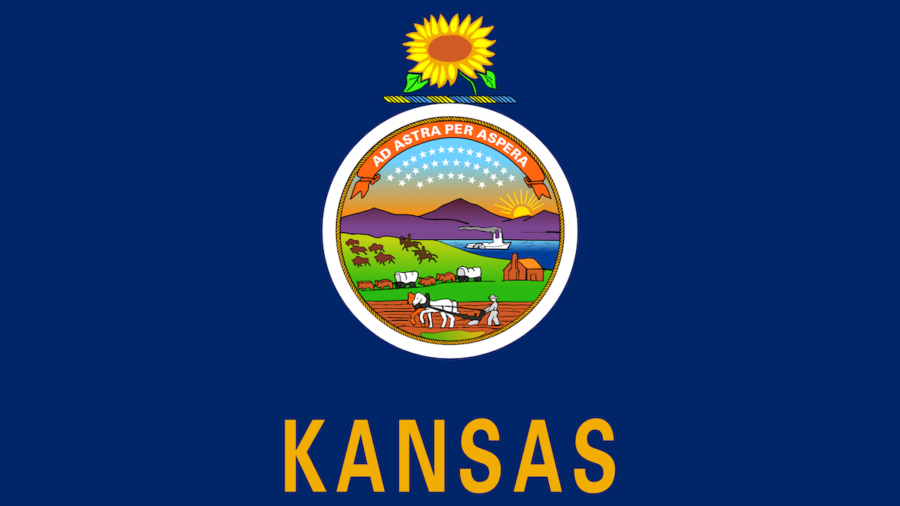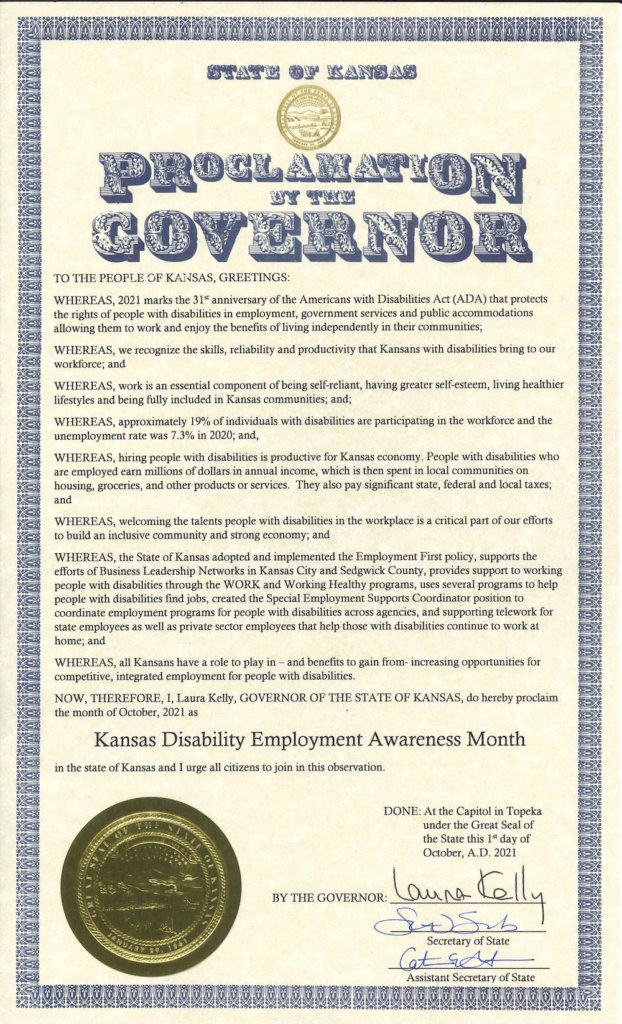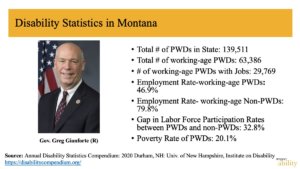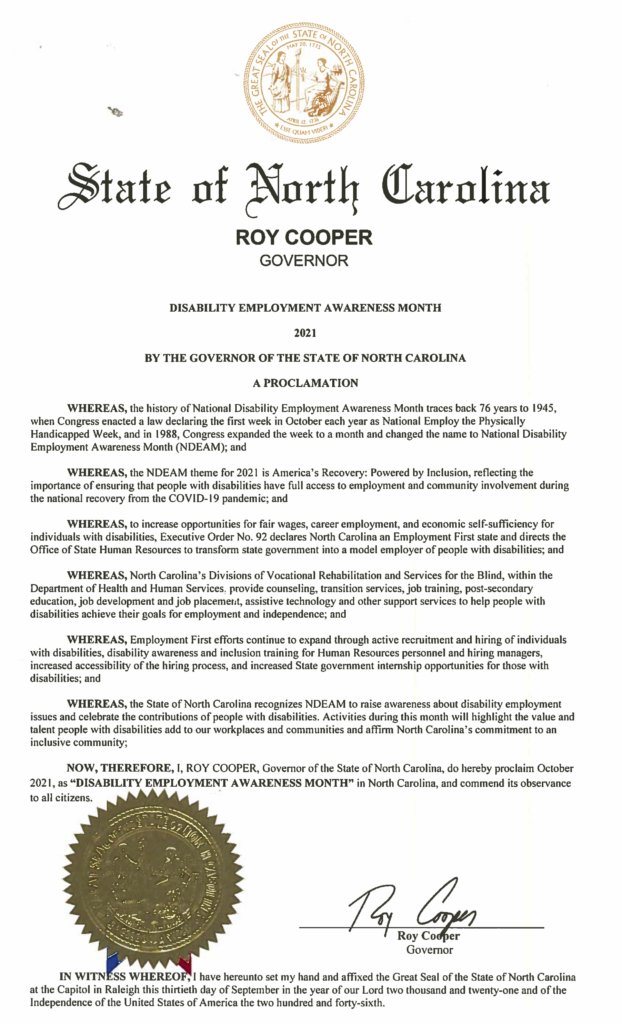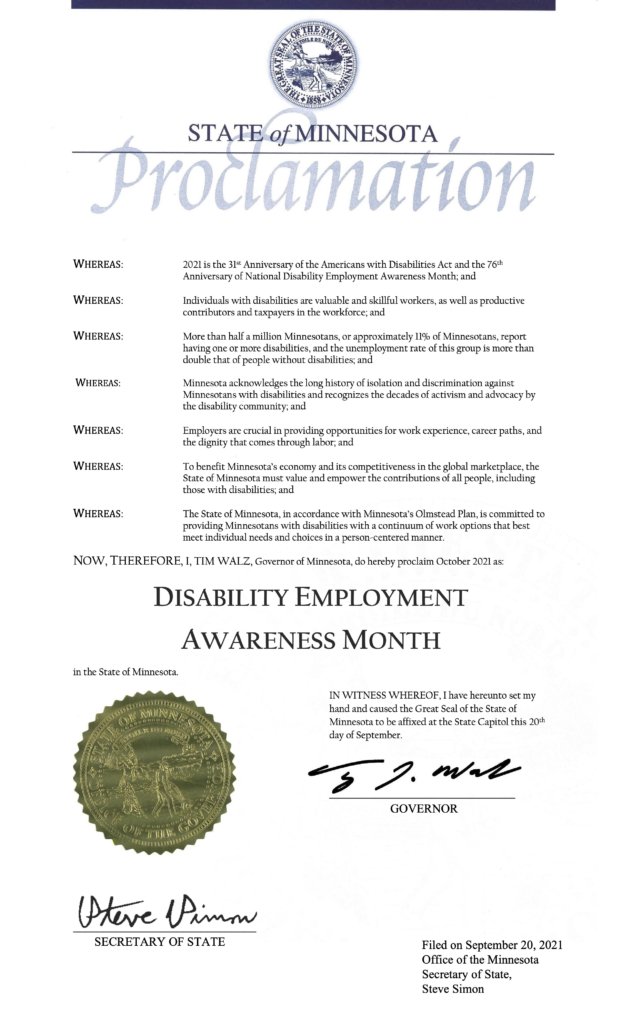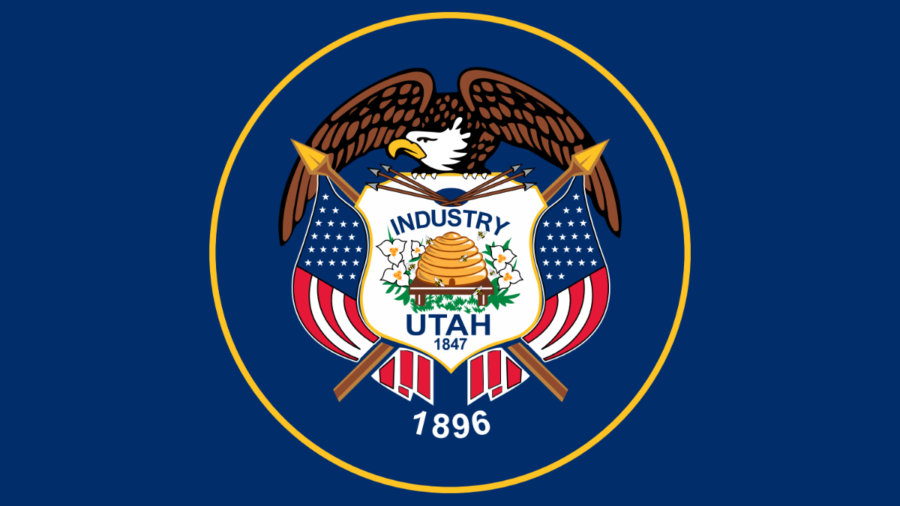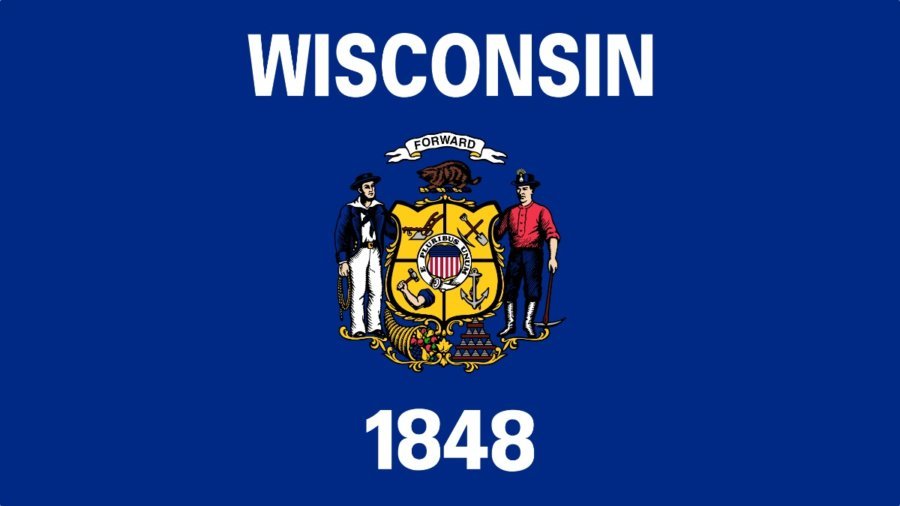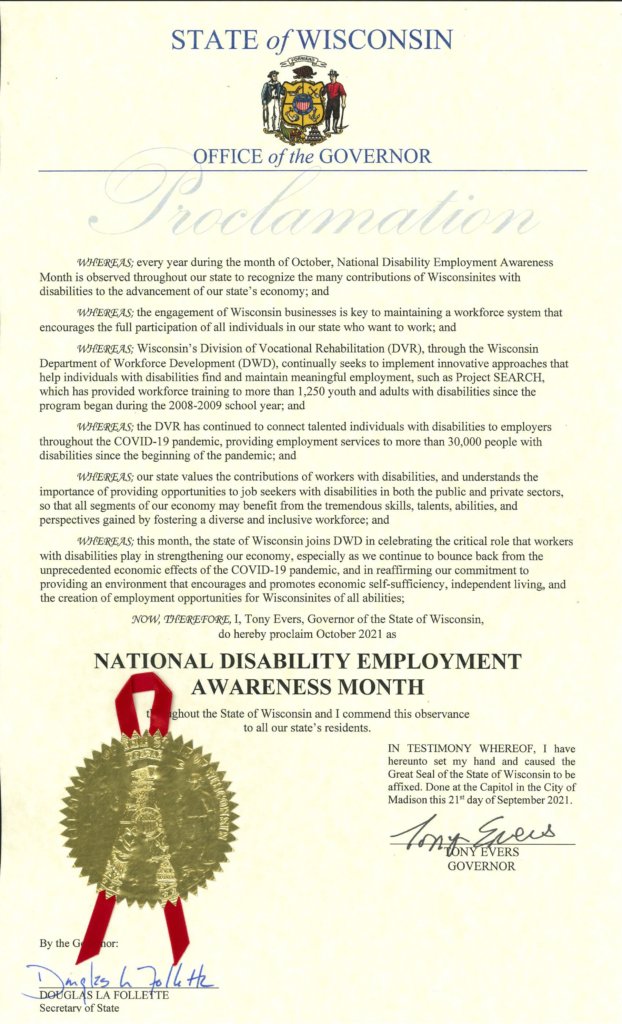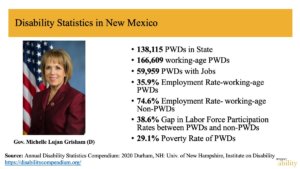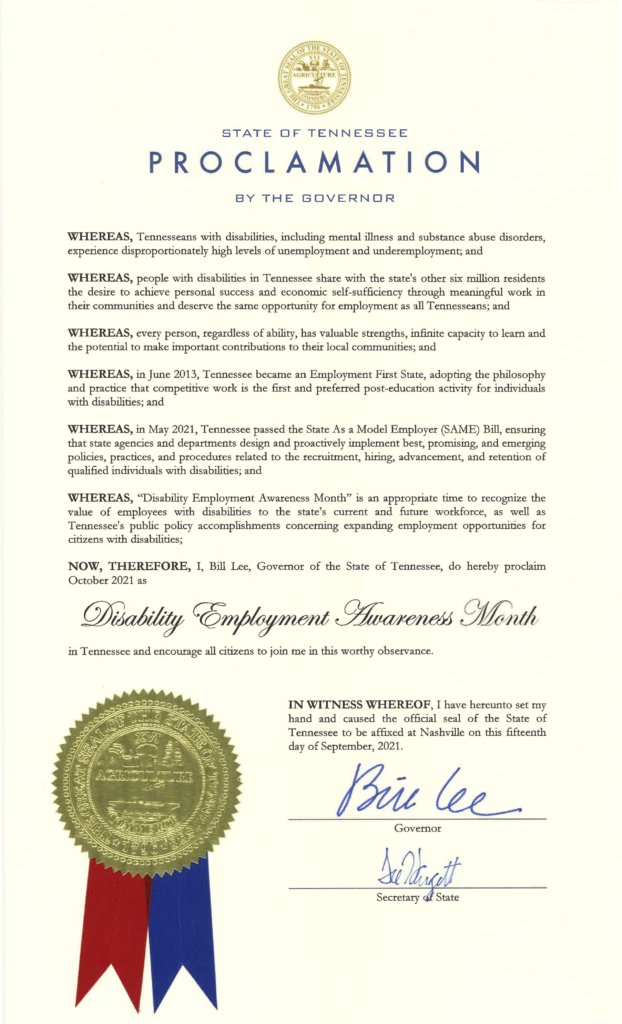Lansing, MI, October 15 – Michigan Governor Gretchen Whitmer reaffirmed her state’s commitment “to an inclusive community that increases access and opportunities to all, including individuals with disabilities” today in a proclamation marking October as Disability Employment Awareness Month.
Gov. Whitmer also called attention to the hard work “of agencies throughout the state whose mission is to create employment opportunities for people with disabilities and raise awareness of disability employment issues.” She also reiterated the critical message that “people with disabilities…are a critical part of our efforts to build an inclusive community and strong economy.”
These are important public commitments for the more than 725,431 working-age people living with disabilities in Michigan. In the economic expansion prior to the COVID-19 pandemic, the Great Lakes State had a 36.2 percent disability employment rate. By contrast, people without disabilities had an employment rate of 78.5 percent. That means that there is a 42.2 percentage point gap in labor force participation rates between people with and without disabilities. [continue reading…]



